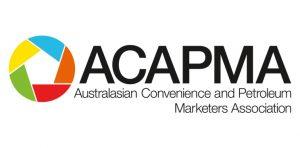 The Productivity Commission last week released a report entitled Shifting the Dial – 5 Year Productivity Review. It examines the factors that are likely to affect the outlook for Australia’s performance over the medium term and makes recommendations to government on those areas that could be addressed to improve this outlook.
The Productivity Commission last week released a report entitled Shifting the Dial – 5 Year Productivity Review. It examines the factors that are likely to affect the outlook for Australia’s performance over the medium term and makes recommendations to government on those areas that could be addressed to improve this outlook.
ACAPMA CEO Mark McKenzie says one aspect of the report that is directly relevant to the fuel industry is the discussion on road-funding mechanisms. The Productivity Commission discusses the looming dilemma for Australian governments in relation to the ability of current road-user taxation mechanisms (including fuel excise) to fund the growing demand for investment in the national road network.
The Commission concludes that current road-funding arrangements are unstable, largely because of the improving fuel efficiency of new passenger cars and the increasing market adoption of new technologies in the light-vehicle fleet (ie, hybrid and fully electric vehicles).
The report draws attention to the fact that road-user revenue – 45 per cent of which is fuel excise – is declining in the face of ever-increasing demand for government investment in road-network improvements.
“This dilemma begs the question about how the Australian government will respond to the increasing annual shortfall,” Mr McKenzie said.
On the one hand, the Australian government could choose dramatically to increase the fuel excise per litre of fuel sold.
“That would be a somewhat courageous move given that fuel excise is already indexed every six months and that the total tax take by the federal government – including fuel excise and GST – currently accounts for around 43 per cent of the retail price of petrol in Australia,” Mr McKenzie said.
He adds that such an approach would “make a mockery” of the ever-persistent calls by federal and state politicians for fuel prices to be kept as low as possible, if the primary driver of fuel-price increases becomes federal fuel-tax increases in the future.
“But there is also an equity issue with this option given that those households that cannot afford to upgrade their cars to the latest fuel-efficient technology will bear an increasing fuel cost while richer households that can afford to purchase an expensive, fully electric vehicle will pay no fuel tax whatsoever,” Mr McKenzie said.
The alternative involves a progressive transition from fuel excise – a tax on fuel sold – to road-user pricing, a tax on road travel.
“This is the recommendation made by the Productivity Commission in its latest report and is one that we believe is worthy of serious discussion now,” Mr McKenzie said.
ACAPMA welcomes the recommendations of the Productivity Commission report.
“While now is not necessarily the time to make such a dramatic transition, we believe that now is the time to start a conversation about the future of road-user pricing in lieu of fuel taxation,” Mr McKenzie said.
This is an edited version of an article originally circulated by ACAPMA on October 27, 2017.



